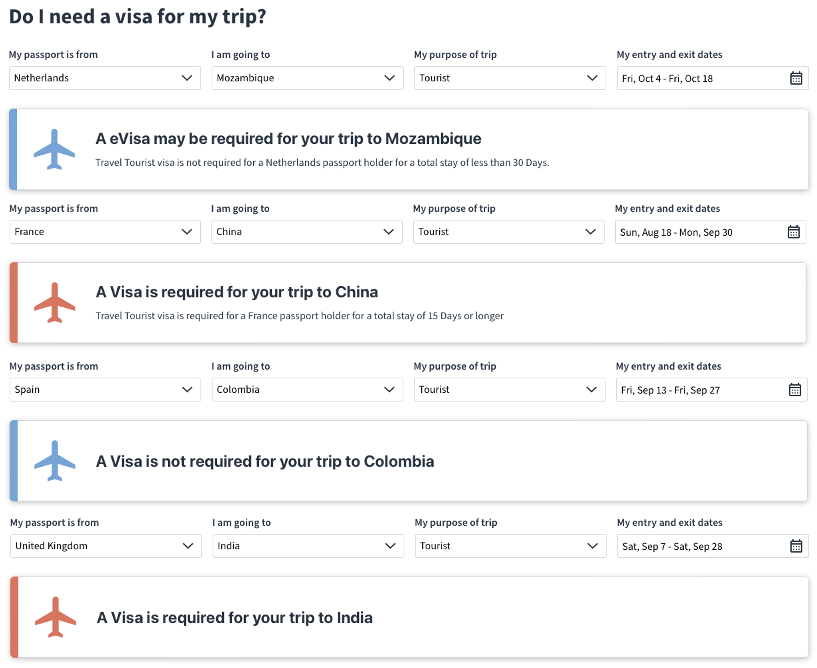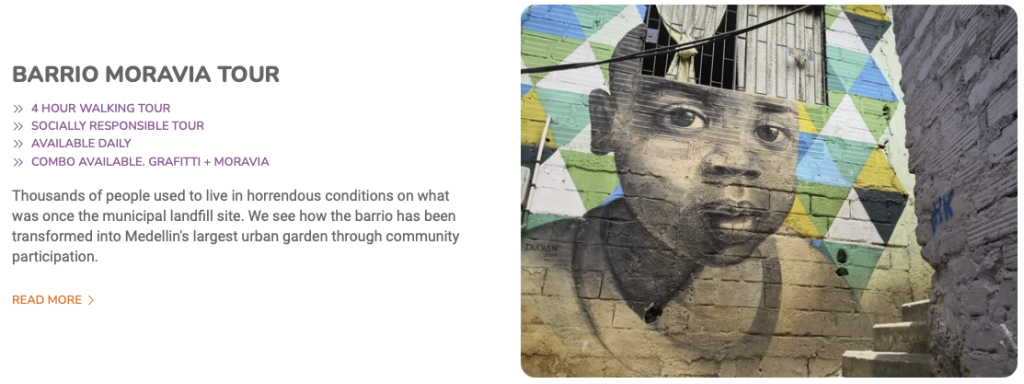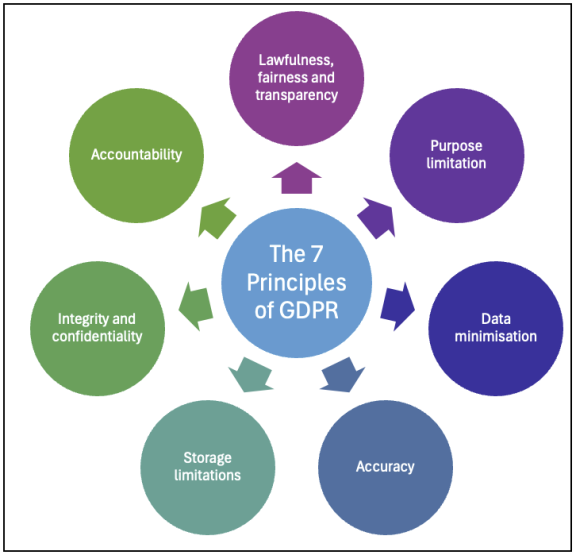
10 tips for organising your tourism services export to Europe
To successfully export your travel services to the European market, you need to know how to prepare your travel products for European tour operator and OTA buyers. Your buyers are professional, well-informed customers whose primary goal is to provide their clients with the trips they have booked and paid for. They have strict conditions that they expect their suppliers to comply with, often called ‘codes of conduct’. Sustainability and responsibility are often at the core of travel experiences to developing countries.
Contents of this page
- Negotiate contracts and payment terms
- Take out relevant business insurance
- Support tourist visa application processes
- Manage your office efficiently
- Be a sustainable tourism business
- Work efficiently and sustainably with local providers
- Export your product online
- Learn more about legal and non-legal requirements
- Be prepared for risks
- Organisations that can help
1. Negotiate contracts and payment terms
Your new business partner will expect you to sign a contract before doing business with you. The buyer will make you aware of their terms and conditions (T’s & C’s) while negotiating. They will expect you to comply with these T’s & C’s. These conditions are likely to include quality, health and safety requirements, and sustainability standards, along with a full schedule of the fees they need to pay for the travel products you supply. The contract formalises all these details and offers both parties protection if things go wrong.
If the buyer provides the contract, you should read it carefully and make sure you are clear about their expectations. If you have a legal department or a lawyer, ask them to review it.
Pay attention to the following:
- The contract with your buyer should list all the agreed fees and pricing. Look out for any additional fees that have been included and ask if you are not sure what they are.
- Ensure the contract clearly states what your buyer expects from you. Make sure it matches what you have agreed upon, as they will hold you accountable if their needs are not met.
- Unless you have negotiated fixed fees for your products, you should ensure the contract contains a price increase clause.
- The contract may also include clauses that relate to the provision of excursions and tourist services supplied by your providers. You should ensure the contracts with your local providers are in line with those of your buyers.
- Make sure the payment terms are as agreed. European businesses normally expect payment terms of 30 days. If this does not suit you, try to negotiate different terms.
- Make sure you are clear about which currency your fees will be paid in. If you are likely to be charged a currency conversion fee, consider including this in what you charge your buyer.
- Establish how you would like to receive payment from your buyer. Direct bank transfer is a common method of transferring fees abroad. Make sure your bank account can accept international currency transfers if this is necessary.
- You should provide your buyer with all the details they need to make an international payment to your bank account.
- The contract should include a termination clause that suits both parties.
The article How you can make sure travel supplier contracts are flexible enough for your business is written from the perspective of a tour operator that does business with a supplier like you. It is interesting to see the factors they consider when negotiating contracts. You can learn what they want in the contracts they sign with suppliers like you.
Tip:
- Read the CBI’s tips for doing business with European buyers for more information about doing business with the European market.
2. Take out relevant business insurance
Having the right insurance is very important. There are three types of insurance you should consider. Public liability insurance is the most important type of insurance and, while it is not required by law, it is highly recommended. Most European tour operators will not do business with you if you do not have it. Trade credit insurance is also worth considering as it will give you peace of mind if you have problems getting paid by your suppliers. This will enable you to continue to do business.
Public liability insurance
It is important for you to have liability insurance for your business. Liability insurance protects you against claims with respect to your legal liability for personal injury or property damage sustained by third parties while a travelling customer is in your care. European tour operators need to have liability insurance before they do business with you.
- There are international insurance companies who can provide you with public liability insurance, like BMS. There are multiple companies that operate in developing countries, such as Hollard, which arranges business insurance for several African countries, including South Africa, Zambia, Namibia, Mozambique and Ghana.
- It is likely to be more cost effective to find a local insurance broker like TATA AIG Insurance, which sells liability insurance in India. Research what liability insurance policies for tour operators are available in your country. Make sure that all aspects of the services you provide are covered by the policy.
- Make sure your policy meets the minimum requirements European tour operators will require from you.
Trade credit insurance
Trade credit insurance is a B2B (business to business) insurance type that protects against the risk of not being paid for the goods or services that your business sells. What this means is that if a buyer you work with fails to pay what they owe you or pays late, you can recover the money through your trade credit insurance policy.
Having trade credit insurance helps businesses continue to make sales to existing or new buyers while waiting for or trying to recover payment. Banks lend more capital to businesses that have trade credit insurance as it is less risky for them. Trade credit insurers often have extensive knowledge of business sectors and economic trends that could be helpful to growing your business.
Many large insurance companies offer trade credit insurance. Some examples of trade credit insurance businesses that work in developing countries include the following.
- Coface for Trade, South Africa. This is a French global company that deals with trade credit risk management. The company also provides insurance in countries all over the world, including Argentina, Brazil, Colombia, Ecuador, India, Malaysia, Mexico, Morocco, South Africa, Thailand and Vietnam.
- Allianz Trade is a world leader in trade credit insurance. It provides cover in multiple countries around the world. Check their locations to see if yours is covered.
- Local companies include ECI Trade Insurance (Tanzania), Lockton IBS Insurance Brokers (Cambodia) and MDS Credrisk (Brazil).
- Research what type of trade credit insurance is available in your home country. Local insurance companies may be cheaper than the large international ones. Get a few quotes to see what you can get.
- Find out more about trade credit insurance. Read this ABI primer on trade credit insurance.
Recommend European travellers have their own insurance
It is worth checking with your European tour operator buyers whether they encourage or need their customers to take out personal travel insurance. Although this will not clear you of your legal responsibility, if there is a problem, travellers are likely to make a claim through their insurance companies first. You can also encourage potential customers and independent travellers to take out their own travel insurance on your website, like the Tanzanian tour operator, Africa Natural Tours.
Tips:
- Make sure you know what insurance policies you have in place. Call the insurance companies if you are not sure of what is covered.
- Include details of your insurance policies on your website so buyers are aware. Provide advice to travellers on your website that encourages them to take out travel insurance before they travel with you.
3. Support tourist visa application processes
You should be aware that some travellers from Europe will need a tourist visa to visit your country. Remember that visa rules do not always apply to all European countries. Tour operators are likely to know whether their customers need visas, but you should stay informed about any changes in the visa process. Many countries are working towards an e-visa system to speed matters up. If your country is not one of these, use your influence as a tourism professional to press for change.
For many destinations, it can be difficult and time consuming for foreign parties to secure tourist visas. For other destinations, multi-destination visas have been introduced. These are cost effective for tourists and mean less time is spent at international borders. One such example is the East Africa tourist visa, which allows visits to Kenya, Rwanda and Uganda with a single electronic visa.
The CIBTvisas website is a useful source of information for visa requirements.
Figure 1: Visas for European tourists – Do I need a visa for my trip?

Source: CIBTvisas, 2024
Tips:
- Establish a good relationship with your national tourist board or the government department that handles visa processing so you can inform your buyer. You can also open a dialogue with them to push for changes to the system if needed.
- Include information about visa regulations on your website to help inform FITs (fully independent travellers). Include all the relevant details of how to apply for a visa. If you decide to include the cost of a visa, make sure you check visa fees regularly to keep your website up to date. See how the Indian tour operator Pyala Travel describes visa information on its website.
4. Manage your office efficiently
European tour operators are generally professional and well organised. They appreciate working with business-like suppliers as well. You should be able to access the information they need from you quickly and easily. You can do this if you are organised in how you operate your office systems. Suppliers may want to visit your offices occasionally to see your books and strengthen business relationships.
Formalise your office systems
- Keep a diary that records bookings, meetings, important events, marketing campaigns and deadlines.
- Keep the records for each buyer and local provider separately. File your correspondence online or in separate folders in filing cabinets so you can access relevant information quickly and easily.
- Keep track of invoices and payments. Make sure you issue invoices timely. You may want to find a local bookkeeper to help you keep track of invoices and payments.
- Establish a system for chasing your buyers for unpaid invoices.
- Make sure you pay local providers on time as per your contract with them. Ensure you are ready and able to pay any taxes or fees at the right time.
Go digital
Digitalisation affects all business sectors, including tourism. Digital business practices are now common across Europe. Being a digital company creates many opportunities including being able to access new markets and develop new travel products and services. Embedding digitalisation into your business will help you export your product to Europe more efficiently. This will impress buyers.
Digitalisation in the tourism sector includes the digitalisation of daily operations, optimisation of your website, effective social media use, selling online and using new technologies, like artificial intelligence.
Tips:
- For more ideas on office management, read Managing chaos in your business.
- Digitalise your working processes as much as you can. Use the CBI study Tips to go digital in the tourism sector to help.
5. Be a sustainable tourism business
Embedding sustainability into tour operator businesses is now mandatory in Europe. This means they will expect you to operate sustainably when you export to them. This involves all business practices, including managing your office and staff, running your tours and working with your supply chain. See the following section: Work effectively with local suppliers for more information.
Your sustainable actions must be practical and measurable. The easiest way of doing this is to become sustainably certified. There are several schemes to consider, including Travelife for Tour Operators, which is one of the most famous schemes in Europe. Other schemes include TourCert and Good Travel Scheme. The journey to become sustainably certified through a scheme can be costly and time-consuming. If you cannot afford to do it immediately, you should still ensure your business is sustainable.
Start with making your office sustainable. Using energy efficient lightbulbs, implementing waste separation facilities, adopting water and other energy saving features and using paper from managed forests are all good ideas. See if there are any local businesses that help companies to improve their sustainability practices. Some countries have sustainability schemes, like Costa Rica’s CST scheme and Responsible Tourism Tanzania (RTTZ), and you should investigate whether there is one in your destination.
Make sure you have a section on your website in which you publish your sustainability initiatives. It is important for your buyers to know what you do to minimise the impact your services have on people, places and planet. Global Himalayan Expeditions is a good example of a local tour operator that puts sustainability and responsible tourism at the forefront of its business and publishes this on its website.
Figure 2: Impact of Global Himalayan Expeditions

Source: Global Himalayan Expedition, 2024
Tip:
- Use the CBI studies to help you become a sustainable tourism business. These are How to be a sustainable tourism business, Tips to go green in the tourism sector and Tips to become more socially responsible in the tourism sector.
6. Work efficiently and sustainably with local providers
Your buyers will expect you to comply with every applicable law and regulation. This means local providers you work with have to comply with them too.
- Transportation – Any means of transportation used in your trips must surpass the minimum quality and safety requirements. You may be required to show that the transportation you provide is environmentally friendly wherever possible.
- Accommodation – Check that your accommodation providers comply with local employment regulations and provide the level of quality agreed with the buyer, including cleanliness, service provision and sustainability. Ensure your suppliers work sustainably. This is key for your buyers. You should be able to show they use water saving programmes, actively reduce waste, promote energy conservation and benefit local communities by providing jobs and economic empowerment. It is likely that your buyer will want to visit to see the accommodation at some point.
- Excursions, trips, tours – Any supplier that you use to provide trips, excursions and tours should operate ethically and responsibly. European tour operators and their customers increasingly want ethical and responsible experiences. They want evidence that the trips provided do not harm or exploit children, wildlife or the environment. Some tour operators have stricter regulations than others, so make sure you know what they are.
- Local communities – Sourcing and buying locally from communities and businesses are key attributes of responsible tourism and should be adopted over other sources wherever possible.
Tips:
- Familiarise yourself with the relevant national local laws and regulations. See what is available internationally, like ATTA’s Code of Business Practice, to see what you can apply. Find local examples of regulations, like the new code of conduct for safari guides that has been adopted in Tanzania. Your national tourism board might also be able to advise you.
- Create a code of conduct for your providers. You could use your buyers’ codes of conduct for inspiration. Look at the Association of British Travel Agents’ (ABTA) Code of Conduct, which all British tour operator members must adhere to.
- Make sure you visit your suppliers in person regularly so you are confident about what you sell on to your European buyers.
7. Export your product online
Industries that sell service-based products like tourism products generally use their websites to show the services they offer. Without a tangible product that can be packaged, your website must convey exactly what you sell. European tour operators and tourists will look at your website and use the information to decide whether they want what you sell. Remember that potential buyers may find you before you find them, so it is vital that your website is up to the job.
The process of preparing your products for export begins with your website.
Build or improve your website
If you do not have a website already, consider building one. There are many online website builders that offer good value packages and are easy to use. Examples include GoDaddy, Wix and Weebly. Weebly offers a free package in return for featuring its brand name on your website. Alternatively, you can design one yourself using Wordpress, or find a design student who knows how to use Wordpress to help you.
The final option is to use a website designer. This is likely to be more expensive, but they are experts and will be able to give you good advice.
If you have a website already, analyse it thoroughly to see where improvements could be made. Research other local tour operators websites to analyse what they do well or not and learn from them. For instance, Mount Kilimanjaro Guide takes an information-based approach to its homepage that emphasises the quality of the guiding and features one large, compelling image. By comparison, Toucan Tours uses images and simple text to outline its tours.
Figure 3: Great images and inspirational text are essential for travel websites

Source: Toucan Tours, 2024
You should consider whether to make your trips bookable online. Your website will need to be ecommerce enabled for this. Check if the website builder offers this or discuss it with your website designer. At the very least you should process orders and requests for information through a ‘Contact Us’ function. Be careful that you align bookings across different sales channels – say OTAs (online travel agents) and direct sales – to avoid double bookings. Digitalising your sales processes can help avoid this.
Use the CBI study How to be a successful tourism company online to help develop your website.
Use OTAs to drive bookings
Alongside direct sales through your website, OTAs that specialise in selling trips, guided tours and experiences are a good way to sell your trips to independent travellers. These OTAs are the fastest growing sales channel for this type of travel product.
Viator (USA) is the world’s largest and best known OTA that sells trips and experiences. European OTAs include Get Your Guide (Germany), Civitatis (Spain) and Musement (Italy). Other OTAs specialise in sustainable, cultural experiences or focus on niche activities, such as Lokal Travel, Traveling Spoon and Responsible Travel. Some OTAs specialise in providing local guides, such as Like a Local, which also allows local tour companies to sign up. Others include Withlocals and Tours by Locals, which provides more than 5,000 guides in 173 countries.
Listing a trip with an OTA brings a lot of benefits to you as a local operator. OTAs can generate additional bookings from an international market that would be difficult or expensive to reach on your own. You only pay for bookings actually made. They act as merchants of record, meaning their commission includes payment processing fees, such as those incurred by credit card or currency exchange fees.
Business listings remain your responsibility. OTAs also expect their suppliers to adhere to quality standards. Usually, operators are charged a set commission for each trip: around 20% of the published price. Before preparing your product for listing on an OTA, you should research which one is the most suitable for the trips or experiences you sell.
Use the CBI study How to work effectively with OTAs to help you find the OTAs on the market.
Use social media to drive traffic to your website
Social media platforms like Instagram, Facebook, TikTok and LinkedIn are widely used by the travel industry. As a local tour operator, actively using your social media channels to inform and inspire can give you the opportunity to reach more people.
Through your social media activities, you can drive interested parties to your website where they can then contact you or make a sale. You can also sell your products on your Facebook page if you do not have a website yet.
Social media marketing is an essential tool in the travel industry these days. To export your product to Europe, you should have good knowledge of social media and the opportunities it can create. You can find more information about social media marketing in the CBI study How to be a successful tourism company online.
Tips:
- Carefully analyse how you present your trips online. Your trips may be the first impression a European customer has of you and your business. They will use it to judge your professionalism and suitability.
- Check all the information for your trips and experiences is up to date and accurate.
8. Learn more about legal and non-legal requirements
It is important that you comply with all applicable laws and legal standards in your country. European tour operators are legally bound by a number of directives and regulations that relate to providing services to their customers. The European Package Travel Directive and General Data Protection Regulation (GDPR) are the key pieces of legislation for the travel industry in Europe.
The European Package Travel Directive relates to protections for the consumer when they purchase two travel elements at the same time, for instance a plane ticket and accommodation. The GDPR relates to the collection, storage and use of personal data, affecting any company that processes the personal data of people who reside within the European Union. If you sell to European consumers directly, it will apply to you too. Read the blog How to be GDPR compliant to learn more about the issue.
Figure 4: The 7 Principles of the GDPR

Source: Acorn Tourism Consulting, 2024
European tour operators sometimes implement international standards to ensure safety and quality of their activities. For example, the International Organisation for Standardisation (ISO) developed a standard for adventure management in 2014. It has been adopted by many tour operators specialised in adventure tourism. Standard ISO 21101:2014 provides a basis for adventure tourism activity providers to plan, communicate and deliver adventure tourism activities as safely as possible. It also features a 2024 amendment relating to climate action changes.
ISO 21103:2014 specifies the minimum requirements for information to be provided to participants before, during and after adventure tourism activities.
There are many standards related to tourism provision. You can explore them on the ISO website to see if there are any related to your business.
If you sell to UK operators, the British Standard for Adventure Tourism (BS8848:2014) aims to minimise the risks of adventure travel. The standard outlines good practices for adventure providers to ensure the safety and wellbeing of travellers and operators. Although voluntary, most British tour operators that specialise in adventure travel are highly likely to ensure that their trips and holidays comply with BS8848.
Tip:
- You can read more about the requirements that apply to the European market in the CBI report on the requirements for tourism services offered in the European market. Look for the list of standards that apply to niche markets.
9. Be prepared for risks
Unfortunately, the travel industry is not without risk, and things do go wrong. Risk comes in many forms, including factors outside your control, such as extreme weather, political unrest, terrorist attacks and health-related incidents. The COVID-19 pandemic is one such health-related crisis.
Other common issues that are more directly related to tourism include cancellations, accidents and complaints. You should plan what to do if a problem arises and what checks you can put in place so you can show your buyers you are prepared for most eventualities.
For your reputation as a reliable and professional local operator, it is important that you can show how you can manage the impact of problems efficiently and effectively. It is important you prepare any crises before they actually happen.
You should prepare a risk management strategy that determines how you will deal with risk. As well as dealing with risk, your strategy could also include measures to avoid risks or reduce risks by improving safety measures. Your strategy should include an emergency plan that can be implemented if necessary.
If you offer activities or excursions directly to fully independent travellers (FITs) that are deemed high risk, ensure they sign a form in which they acknowledge the risks involved in the activity. If the activity is especially high risk, such as bungee jumping, you should insist participants have personal travel insurance. If the participant is part of a trip managed by your buyer, make sure the tour operator has confirmed that relevant participant insurance policies are in place.
Make sure you know which national bodies you should contact in the event of a crisis, particularly ones beyond your control. These should include your national tourist board, the police, the ministry of tourism and health professionals.
There is lots of information online to help you create a risk management strategy. As well as the CBI study How to manage risks in tourism, you should read Tourism risk Management - an Authoritative Guide to Managing Crisis in Tourism by the Asia-Pacific Economic Cooperation (APEC). It is from 2006, but the risks involved and their management are similar.
Tips:
- Identify the potential hazards and risks for your business to understand what damage the risk would have on your business.
- Ensure your staff have been trained and are ready to respond to crises.
- Be honest with your buyers if a problem arises and communicate with them promptly. Avoiding them can seriously harm your business in the long term.
- Be sure to address complaints directly and quickly. Complaints often reach more people than positive reviews, and you should take steps to protect your reputation. Acknowledge the complaint and take steps to compensate the complainant in some way. Complaints can sometimes give you insights into improving your service in the future.
10. Organisations that can help
Government departments and trade organisations in your target countries and Europe may be able to give you support.
- You should consult national tourism bodies in your country for advice on exporting through European tour operators, such as tourist boards, tourism associations, ministries and tourism departments.
- Government trade departments in your target countries may offer advice to service importers. The German Federal Ministry for Economic Affairs and Energy, for example, promotes foreign trade and investment. In the UK, the British government provides advice for importers of services from non-EU countries.
- Trade institutes also provide advice to international businesses, such as The Chartered Institute of Export and International Trade (UK), the International Trade Centre (ITC), the joint agency of the United Nations (UN) and the World Trade Organisation (WTO).
- Consult the European Union’s import and export page for advice. See the tourism sector page for details on the EU’s tourism policy and how it supports tourism businesses and promotes international cooperation.
- The European Tourism Association (ETOA) provides a number of useful features on its website, including trends, insights, regulations and changes.
- The European Travel Agents’ and Tour Operators’ Association (ECTAA) offers interesting information, including details of the package travel directive and sustainable tourism.
The CBI has produced the following publications that may be interesting.
For detailed information about exporting services to Europe, consult the CBI’s Exporting to Europe Guide.- Understanding the buyer market in Europe is a key challenge for tourism providers. You can find some helpful advice in the CBI study Tips for finding buyers in the European tourism sector.
- You should research how different European markets conduct business so you can adapt to their needs. Find out more in the CBI study Tips for doing business with European tourism buyers.
Acorn Tourism Consulting Limited carried out this study on behalf of the CBI.
Please review our market information disclaimer.
Search
Enter search terms to find market research

